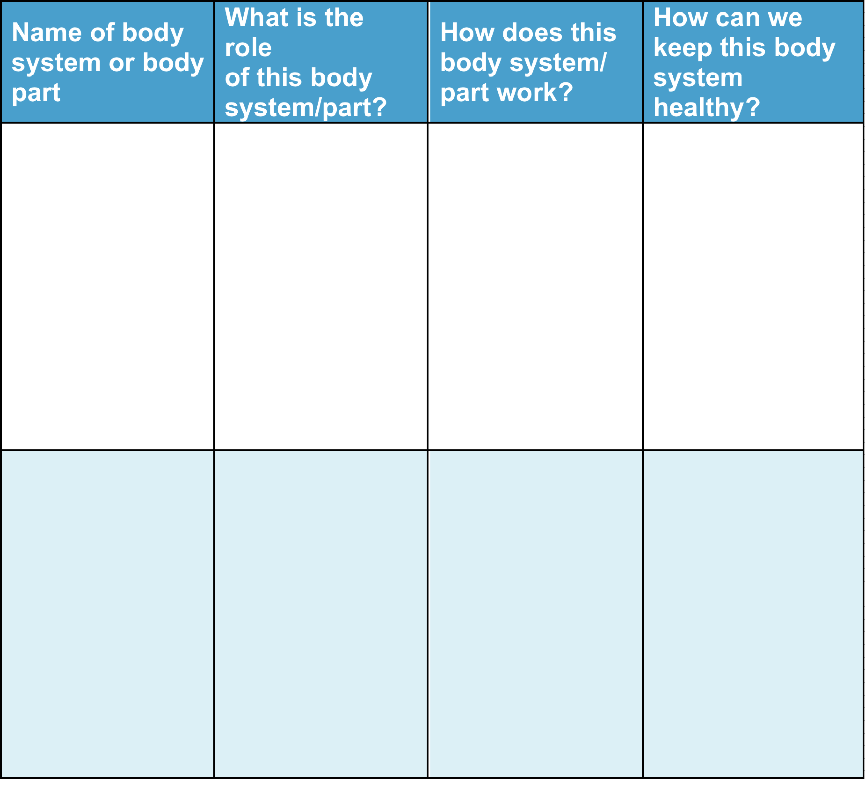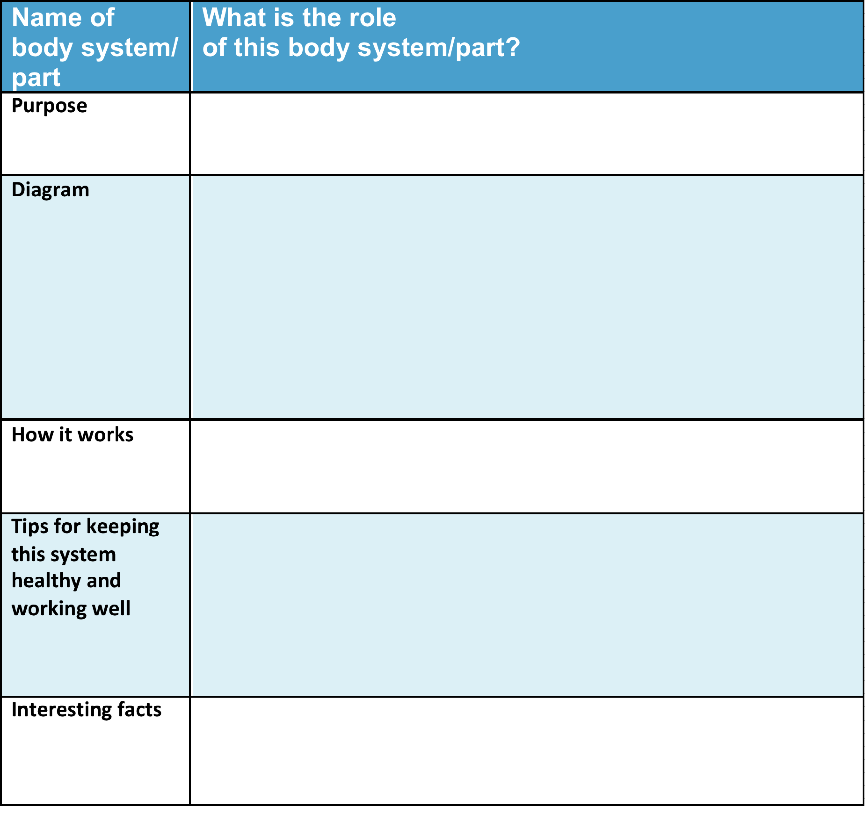Information for Teachers
Curriculum links
Australian Science Standards
NDS (ACSHE061) Ways in which scientists gather evidence for their ideas and develop explanations
UIS (ACSHEO62) Science knowledge helps people to understand the effect of their actions
New Zealand Science Achievement Objectives
LW: The key structural features and functions to the life processes of plants and animals
Helpful websites
You may want to direct your students to some or all of these websites to help with their investigations.
https://health.howstuffworks.com/human-body/systems
https://www.livescience.com/22665-nervous-system.html
https://kidshealth.org/en/kids/htbw/
Students can use words like these to search:
body systems+circulatory (nervous, digestive, etc.)
body organs+heart (lungs, eyes, muscles, etc.)
How to search the internet
1 Keep your request short
Fewer words will give a more accurate search.
2 Choose exactly what you want
For example: Arctic Circle Climate
3 Use quotes
Double quotes around a set of words tell the search engine to consider those exact words in that exact order without any change. For example: “Arctic Circle Climate”
4 Use the plus sign (+)
If you add a plus sign (+) between words, the internet will search for all the words. For example: migrate+birds+whales+mammal
5 Use the minus sign (–) to say what you don’t want
Use a minus sign (–) to show words you do not want to appear in your results. For example: if you search for burrowing animals and do not want mammals in your search, –mammals will exclude mammals. Note that you need to put a space before the minus sign for the word to be excluded.
6 Be very clear about what you don’t want
Part 1
Ask questions and make predictions
After reading Our Bodies, you may have many questions about how your body works.
List your questions.
- Compare your list with questions that others have.
- Choose a question you would like to investigate.
- You can work alone, with a partner, or in a small group.
You may want to choose one or more of these questions to investigate
Q1. What is the difference between the circulatory and the respiratory systems?
Q2. What are the main organs in each of the body systems? How do these organs work? You might like to choose one particular body system or body organ to investigate further.
Q3. How do the sensory organs (the eyes, ears, nose, etc.) work with the nervous system?
Q4. How are the skeletal and the muscular systems similar? How are they different?
Q5. How can we help to keep our body systems working well?
Go to Part 2 Plan and investigate →Part 2
Plan and investigate
Do searches in the internet or in books or talk to people who can help to find the information you are looking for.
Your teacher may suggest suitable websites for further information.
Go to Part 3 Record and analyse data →Part 3
Record and analyse data
Find a way of recording your information that will allow you to see any patterns in the data.
Data Chart for summarising the main information about different body systems
(Download and change to suit your information)
 Download Chart
Download Chart
Go to Part 4 Evaluate the information →
Part 4
Evaluate the information
1. Look over the information you have gathered and the patterns you have found.
What do most body systems have in common?
What are the main differences between the systems in the human body?
2. Search for other patterns.
What does each body system need to be able to work well?
3. Make notes about what you find.
Go to Part 5 Communicate and share ideas →Part 5
Communicate and share ideas
Look over the information you have gathered in your investigation.
What are the most important ideas about how the systems in the human body work?
Make a chart showing the most important ideas.
 Download Chart
Download Chart
← Return to menu
